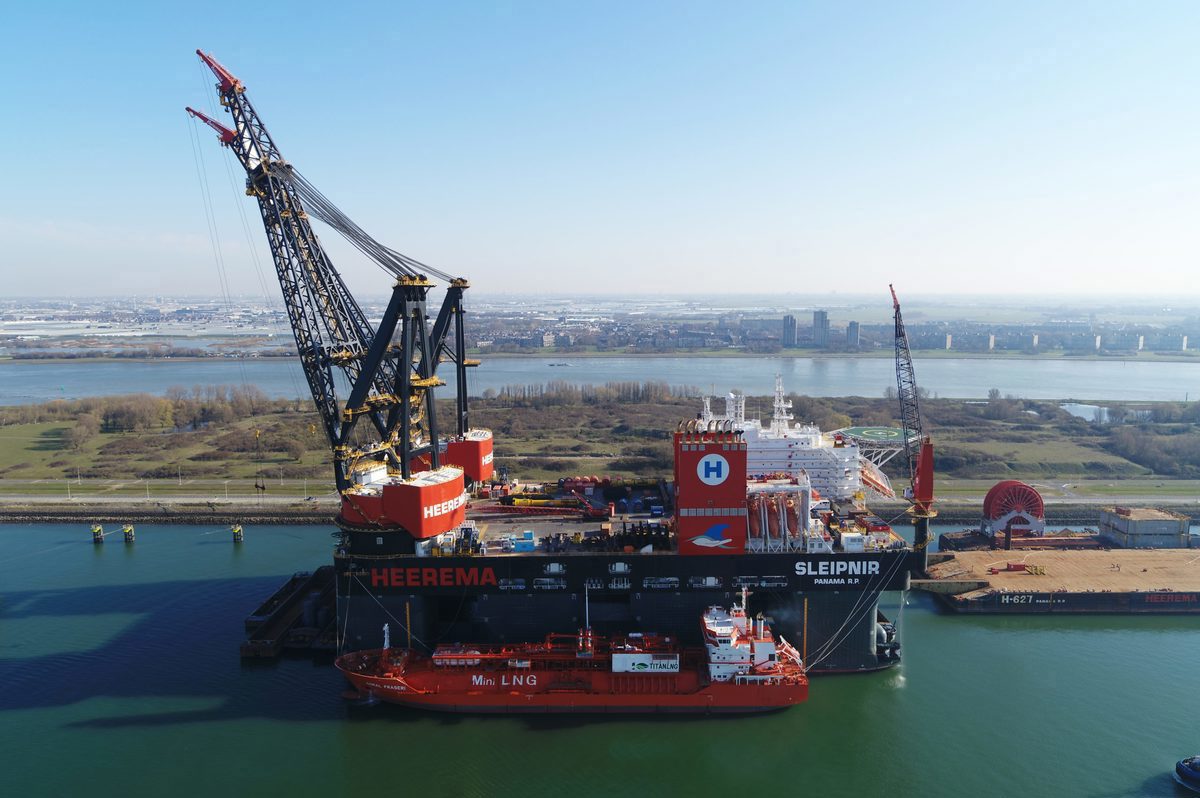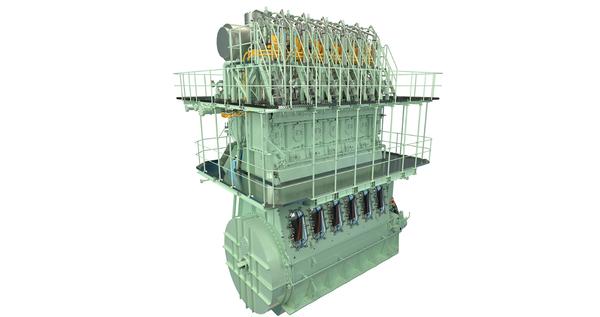LNG Bunker Snapshot: Singapore's price rises amid heatwave, Rotterdam's steady
Singapore's LNG bunker price has increased in the past week, driven by higher demand and competition from the power sector amid above-average temperatures in Asia, while Rotterdam's price has been steady.
 PHOTO: A bunker vessel delivering LNG to a semi-submersible crane vessel in Rotterdam. Titan
PHOTO: A bunker vessel delivering LNG to a semi-submersible crane vessel in Rotterdam. Titan
Changes in weekly LNG bunker prices:
- Rotterdam down by $1/mt to $680/mt
- Singapore up by $9/mt to $787/mt
Rotterdam
Rotterdam’s LNG bunker price remained stable in the past week, slipping slightly by $1/mt to $680/mt. The price drop has mirrored the dip in the front-month NYMEX Dutch TTF Natural Gas benchmark, indicating stability in the European gas market.
"European gas markets ended the weekly session on Friday rather neutral and with limited gains where some upside occurred. Overall, the market appeared pretty balanced and without major distortions lately," according to a report from Energi Danmark.
Despite potential supply risks the market remained unaffected, with contract prices staying within a narrow range, Energi Danmark added.
There are concerns about supply disruption in the European gas market due to an outage at Norway's Dvalin gas field and annual maintenance work at the Karsto gas plant.
European gas stocks have continued to increase and are now at 76% capacity, which is similar to last year's levels and above the five-year average of 66%, commented ING's head of commodities strategy Warren Patterson.
Singapore
Singapore's LNG bunker price has risen by $9/mt, reaching $787/mt. This increase is driven by a higher NYMEX Japan/Korea Marker (JKM) price.
Singapore's LNG bunker price premium over Rotterdam has widened to $107/mt from $97/mt last week.
Asia remained a key destination for US free-on-board (FOB) LNG cargoes due to strong arbitrage opportunities in June for August and September deliveries, according to Rystad Energy.
Weather forecasts from the Japan Meteorological Agency suggest a 70-80% chance of above-average temperatures across Japan. Similarly, South Korea’s Meteorological Administration predicts a 40% chance of average or above-average temperatures until early July, which can result in increased electricity consumption and higher LNG demand for power generation.
This surge in demand across key Asian markets can tighten LNG supply, causing suppliers to prioritise deliveries to these high-demand regions. As a result, this can reduce the availability of LNG for bunkering in Singapore, exerting upward pressure on prices.
By Debarati Bhattacharjee
Please get in touch with comments or additional info to news@engine.online






